Goodness Happening in the World
- lillianhope
- May 13, 2019
- 6 min read
Updated: May 13, 2019
Facebook has it’s moments. We were making our itinerary and I knew that my friend Martin Russell from way back in high school had some connection with Africa. So I reached out and what happened was amazing! We have become very relaxed with planning, as nearly 5 months of travel has shown us that things work out pretty well without too much overthinking and we like the flexibility that not over-planning gives us. That said, safari planning needs to happen in a detailed way and Martin connected us with his good friend Saltieli Munisi, who was a former air traffic controller at Kilamanjaro International Airport and then head of the airport for many years. After his retirement, he put his detail driven nature into starting a travel/safari planning business. He was a godsend to us. We had a magical safari which was more than we ever imagined.
After we returned to Moshi from our safari, we had a rich, full schedule of insightful activities arranged by Martin and Saltieli. Saltieli and Yusuphu (our amazing safari guide/driver) picked us up and took us to the Neema Orphanage Kalali, which was run by nun named Agnes, with the warmest of hearts. In a place like Tanzania you know there is hardship and poverty but this was difficult to process. First we sat and had tea and snacks and discussed their mission and then we went on a tour. First stop was the infant room. There were ~15-20 infants in the room and they immediately started crawling towards us when we entered the room. David reached up to me and I held him the entire time, not allowing me to put him down.
It was heartbreaking to know these kids don’t have enough interpersonal interaction and bonding that is so important. They are well taken care of with limited staff and monetary resources. We also saw the toddlers and young school kids. Their bright smiles show promise, if only there were families able to adopt them.
Next we met with Bob Kasworm to see a project called Houses for Health. The program started 2007 with the goal to help those with HIV/AIDS. For the very poor in Tanzania, poverty leads to bad health, and bad health leads to poverty. When you dealing with HIV/AIDS with sub-standard housing the challenges can be monumental. Houses for Health has crafted a way for the Tanzanians to build their own homes with 100% local labor and materials. A cost for a house is ~$3500. We met a man with HIV/AIDS, who was in a motorbike accident (an all too common occurrence) who was living in a home built by Houses for Health. It was unimaginable to see him in a muddy, cold home with his ailments, his challenges were so great even with stable housing. Such an important gift for individuals, families and the community.
From there we went to see Machame Lutheran Hospital, where Bob Kasworm is the Director of Operations/Program Directer. He brought us to his office, stopping to chat along the way with staff in Swahili, he radiated kindness, intelligence and warmth.
Bob gave us a personal tour of the hospital, seeing the orthopedic, pediatric and surgical wards. Highlighting the work they are doing to continue to provide the best care with a small budget. He showed us a program that was put in place to provide the hospital with orthopedic implants at a very low cost and also their anesthesia program. So many initiatives created in step with community and culture to provide the best care.
Additionally the hospital started a School of Nursing in 2010. The facilities were impressive and the opportunites afforded to students who are fighting to get an education beyond secondary school are incredible. Again, helping individuals who then go out and improve the state of the community. It was an inspiring day with so much to process.
Day 2: Another early morning, we first went to Mtakuja Secondary School, accompanied by Daniel Mlambo from Quest Forward Learning, at the Opportunity Education Foundation of Tanzania. What we witnessed was profound. We drove to a school outside of Moshi which had previously been an underperforming public school. Traditional schools in Tanzania focus on memorization and passing state tests, with children facing forward, quietly listening to a teacher writing on a blackboard. There are few resources for these kids. The Quest model provides kids with a tablet that allows them to explore endlessly topics that interest them. The school adopted Quest Forward Learning framework as their main source of curriculum and the results were transformative. Form I is the first class in the world to fully adopt the Quest Forward Learning framework as their main source of curriculum.
During the summer of 2016, a team of Tanzanian quest designers created 286 quests that cover the topics and standards from the nine required Form I subjects – English, Swahili, Mathematics, Chemistry, Biology, Physics, History, Geography and Civics. Six Mtakuja teachers trained in the Quest Forward methodology now sacrifice their usual positions at the front of the classroom to spend class time checking in with individuals and groups of learners. These mentors help (or challenge) learners to find information, rather than instructing them by dispensing lectures. These kids were engaged and articulate. They even challenged Celia to a chemistry problem, she was happy to solve the problem with them.
Next we went down the road to the Rose Education Center, which was started by Roselyne Swai. She was a bright and engaging woman with a difficult history, involving almost unbearable personal setback, her legs are paralyzed related to an infection with measles and small pox when she was a small child. Her father died when she was young and her mother was unable to give her opportunities. She was helped by a European priest and given educational opportunities and has gone on to start a school to give back and help children who otherwise don’t have opportunities. The resilience was striking. She is giving back to her community in a profound way, helping children who otherwise might not have opportunities.
It was again, so much to absorb, all the good that is happening in this community. People have so much to offer, even when they have few resources.
I think Gage was overwhelmed with it all. He asked to start later the next day and stay home and work on his studies. I meekly asked Saltieli if we could change the schedule and start later. He looked at me with a very concerned expression on his face and said that he thought it was better to adhere to the plan. I of course agreed and had to go back to Gage and tell him we were on for the next day bright and early. I am so glad that Saltieli encouraged us to keep with the plan because our experiences were important in terms of understanding the work that people are doing in Tanzania and lives that they are changing.
Day 3: BBC (Building a Caring Community) and Amani Home for Children. First we met with Rev. Anna Eva Makyao who runs the BBC. It is a community-based model which uses comprehensive services for children with intellectual disabilities and their families. They serve 200 children through day center and in-home services, as well preventative healthcare and microcredit programs. Services are open to anyone in need, regardless of religion or cultural ethnicity.
The day we visited was a “shamba”, which is a day of farming. Everyone was out in the field tilling the soil, those with more capabilities were helping the others. It was quite something to see. The BBC has facilitated success for these kids with many obstacles in terms of poverty and social isolation.
Our next stop was Amani Children’s Home. Since 2001 Amani has been a haven of peace and safety for Tanzania’s most vulnerable children. Amani rescues homeless children and gives them a safe and loving environment, educational opportunity and a hopeful future. The mood was upbeat with happy kids who seemed engaged in their future.
If you would like to donate to any of these amazing programs: Neema Orphanage Kalali, Houses for Health, Machame Hospital and Nursing Program, Opportunity Education, Rose Education Center, BBC and Amani Children’s Home. You can also Venmo me money and let me know where to contribute, I will make sure the money gets to those in need. The great thing about those program is all of the money goes to those in need with no overhead.



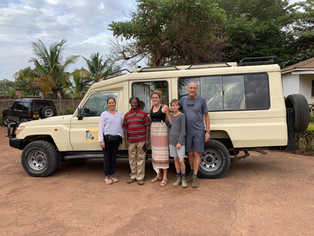

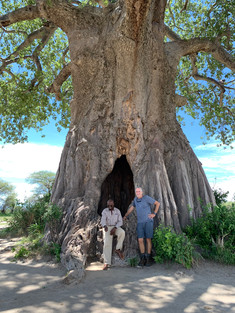





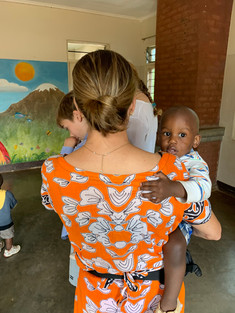

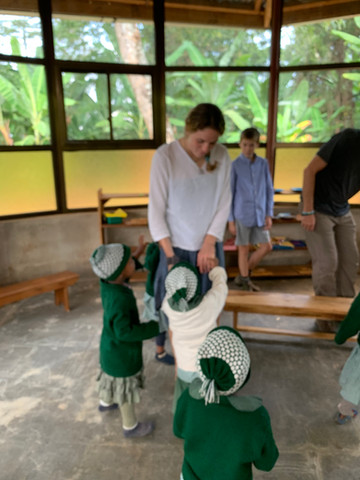

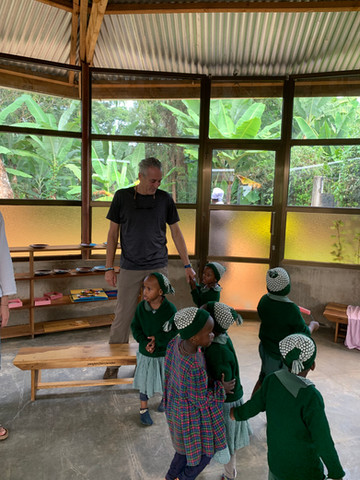



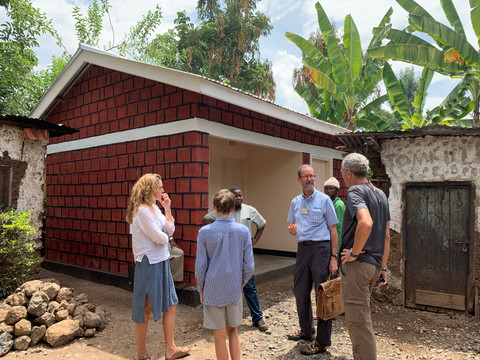



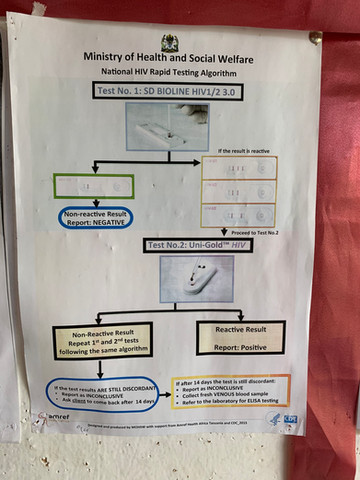





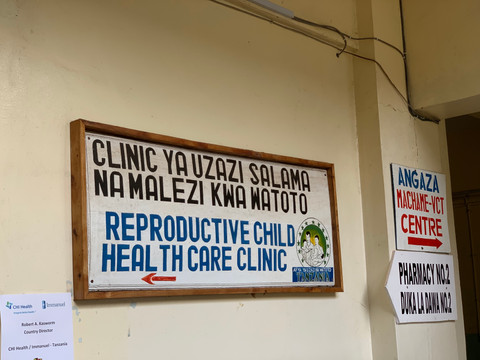







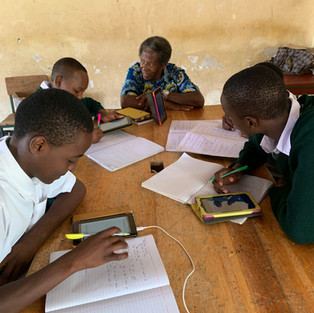











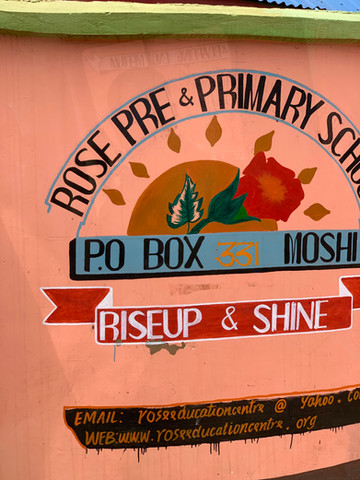







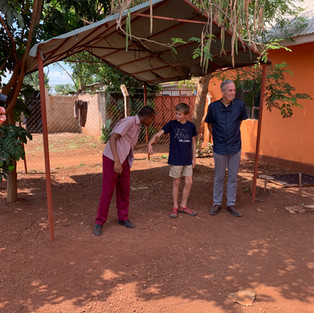



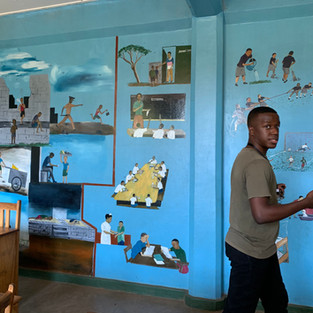



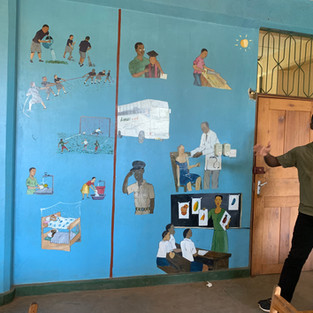



Comments